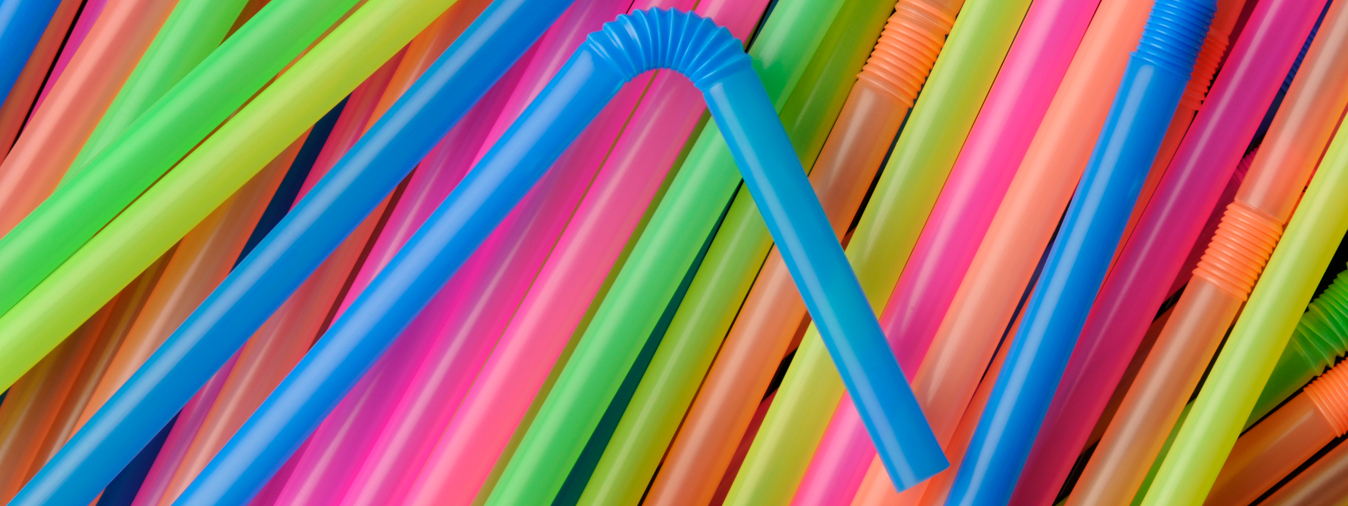
What’s the problem with plastic?
We’ve all seen the photo of a turtle with a cotton bud stuck in its nose and the heartbreaking scenes of whales with stomachs full of plastic bags and we’re all agreed – plastic is bad and needs to be abandoned post haste, right?
Well…
As with almost everything to do with the environment and climate change, the answer is never that black and white.
Plastic, just like any other material, has benefits and impacts. The problem lies with using a product once - requiring energy and raw materials to make - then ditching it so quickly after use.
Plastic has caught the headlines because it is so long-lasting, often for hundreds of years, and can be found far too frequently littering our environment, from our oceans and beaches to our streets and parks.
The reality is that any single-use product, no matter what it is made of, has the potential to cause damage.
Words like ‘compostable’ and ‘biodegradable’ lull us into a false sense of security but we don’t have the infrastructure to be able to deal with these types of materials and in all likelihood, they will end up in landfill where they are unable to break down due to lack of oxygen.
However, if you want to make reusable products that can be used time and time again to prevent the need for single-use throwaway items, then plastic can be a benefit.
Your plastic legacy
Given that a disposable plastic bottle can last for around 500 years, we can assume that a much sturdier reusable coffee cup could last at least that long too, probably longer.
That means if you look after your reusable cup, then technically you could pass it down through around 16 generations of your future family. So the reusable cup you own today could still be being used by your great-great-great-great-great-great-great-great-great-great-great-great-great-great-great-great-grandchild.
You can start to see that plastic isn’t necessarily the problem – it’s the way we use single-use products in general.
Plastic isn’t necessarily the problem – it’s the way we use single-use products in general.
Share on

Some really rubbish ways we use disposable products
Single-use water bottles. We live in Scotland, with easy access to clean, fresh water from the tap. With more and more places making it easy to re-fill on the go, there’s little excuse not to use a refillable bottle.
Plastic straws. Single-use plastic straws are now banned in Scotland, with an important exemption allowing for them to be provided as a vital accessibility aid for those who need them. Straws made from paper and other materials are still available, but if you don’t need one, then the best thing you can do is use your lips and just say no thanks!
Don’t be fooled by the awful paper alternatives too – they have other impacts for the planet – use your lips and just say no thanks!
Wrapped fruit and veg. If you have the choice of an unpackaged version, then speak with your wallet and choose that instead.
In some instances, packaging can help to prevent food waste. But, if you have the choice to buy loose then choose the quantity you need. Just make sure you store it at home correctly so it doesn’t go to waste.
Shrink-wrapped multipacks. Are we really okay with buying products that use extra packaging to save you the bother of picking up four tins of beans when you could just pick up one handy pack? Consumers have power – stop buying and they stop selling.

Some positives for plastic
Bags for life. The plastic bag that’s okay to like. We asked around the office and one team member has had one for about ten years now – and it’s still going strong. Just make sure you’re not buying new ones every time you shop.
Refillable water bottle. An obvious hero item. It not only gets rid of the need for buying bottled water on the go, carrying one around also tends to stop you buying anydrinks on the go, saving loads of cash on unnecessary sugary rubbish which means it’s good for your health too.
Reusable cup. There’s an argument to be made that drinking coffee on the go is a luxury we could perhaps forgo as we plunge headlong into ecological crisis, but there’s no denying the reusable coffee cup’s potential to make a dent in the 200 million disposable coffee cups we use every year in Scotland.
Reusable containers. A plastic invention so useful people even had parties devoted to them. Use them to take sandwiches to work or school rather than using cling film. Take them to your local takeaway for work lunches – if you’re a regular they’ll be happy to oblige. Take them to the deli counter at the supermarket. Take them everywhere!
Choose to reuse
Using any material for just a few seconds is a crazy idea that has to stop. Plastic can be useful in creating products that we can use time and time again to prevent waste, but only if you really need it in the first place.
So there you have it. Choose reusable where you can, cut out single-use throwaway items (plastic or otherwise!) and, of course, make sure that anything used is recycled.
Choose reusable where you can, cut out single-use throwaway items (plastic or otherwise!) and, of course, make sure that anything used is recycled.
Share on
Top 3 things you can do right now
Choose reusables where you can.
Cut out single-use throwaway items (plastic or otherwise!).
Make sure that anything used is recycled.
